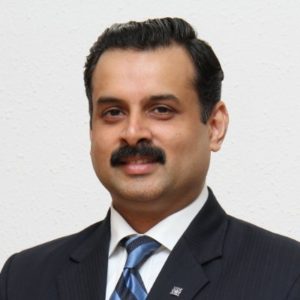Mr. Pankaj Phatarphod - Managing Director & Country Head of Services – India , Royal bank of Scotland

Your views on CSR and Sustainability
At RBS, we define sustainability in the broadest possible terms.
It is about conducting our day-to-day business the right way. We continue to play our part in addressing the big global challenges through our policies and practices, but first and foremost we need to get the basics right for our customers. We define our relationship with society through how well we are serving our customers. If we are supporting their ambitions to buy a home, start a business or grow their company – and doing that responsibly – then I think that has a very positive influence on society. Of course, we are also giving tens of thousands of employees a rewarding place to work, and getting involved in supporting our local communities across the globe.
As part of its sustainability mandate, RBS believes in inclusive growth and demonstrates it by supporting local communities in the countries in which it operates. RBS implements several programs to promote enterprises, with a special focus on livelihood generation, youth and women.
We know that RBS exists in a sector that faces huge challenges and needs to change, and we’re committed to playing a leadership role. The Sustainable Banking Committee deals with matters of reputation and trust, including cultural change. We also oversee the sustainable running of the bank in relation to the long term interests of its stakeholder groups, which include customers, employees, shareholders, government, regulators, media, suppliers, society and advocacy groups.
Activities carried on by you / your firm on this front
RBS India in line with the global objectives works towards economic inclusion for those excluded from the mainstream economy. By identifying the long term challenges that are faced by the communities, it strives to create platforms that would enable economic empowerment and facilitate financial and social inclusion. This is carried out through RBS Foundation India.
In India, our commitment to the communities started in September 2003 – with the launch of our Microfinance business. After three years of lending, and establishing ourselves as industry leaders in India, we felt the need to support Microfinance Institutes in the under-served regions of India i.e. North and North East. This led to the launch of a three year Microfinance Technical Assistance program wherein 37 small Microfinance Institutes were supported, improving their operating efficiencies, governance, systems and processes thus enabling them to scale up their operations and benefit many more lives. The program came to a successful closure in 2010.
Our interactions with the community helped us understand that while access to credit is important, it is not sufficient to eliminate poverty. A poor household is faced not only with lack of access to finance, but also lack of access to markets and technical knowledge to improve production or adopt ways to improve vocational inefficiencies or simply even develop an alternative vocation. These issues are further aggravated for those who live in remote geographical locations that keep them away from mainstream markets and society – primarily forest dwelling communities that are dependent on natural resources such as water and forest resources. These findings led to the launch of the ‘Supporting Enterprise’ programme in 2007. The aim of the ‘Supporting Enterprise’ programme is to facilitate enterprise development for those that are dependent on the resources of the country’s critical or important ecosystems.
As a bank with a diverse and talented workforce we’re in a unique position to help make a difference in our communities. There are several ways to share our skill and experiences that can help others from among our communities to learn new skills, find a job or start a business. In India, one such way we do this is through our employee volunteering program, Magic Hands at Work. This programme aims to enhance one’s knowledge of the issues prevalent in our society today like poverty, climate change, gender and inter-generational equity and loss of bio diversity.
Your views on Employees acting as volunteers
We know that RBS exists in a sector that faces huge challenges and needs to change, and we’re committed to playing a leadership role. The Sustainable Banking Committee deals with matters of reputation and trust, including cultural change. We also oversee the sustainable running of the bank in relation to the long term interests of its stakeholder groups, which include customers, employees, shareholders, government, regulators, media, suppliers, society and advocacy groups.
Why should students study CSR
Gone are the days when aspirations were focused on law, medicine or economics. Today, passion drives careers and a ‘cause’ more often than not ignites passion. We find young adults increasingly taking risks in their careers, some even forfeiting high paying desk jobs for a more rewarding experience.
My advice to students contemplating on how they’d like to leave their mark is, follow your heart and what drives you ; you’ll be surprised that by doing so you’ll also be able to make a living and more importantly leave behind a legacy of having made a difference. Personally, sustainability and all that it encompasses is not only a rewarding experience but also a very challenging one. You work with people from different realms of life, from political leaders to social workers, you delve into issues which have long-lasting effects on society at large, you ‘get your hands dirty’ and actually go into areas most affected by these issues and the list just goes on… Organisations today need to play their part in helping the communities in which they operate and in order to do so we need professionals with the right level of expertise to help us with this.
Contacts:
https://in.linkedin.com/in/pankaj-phatarphod-219279